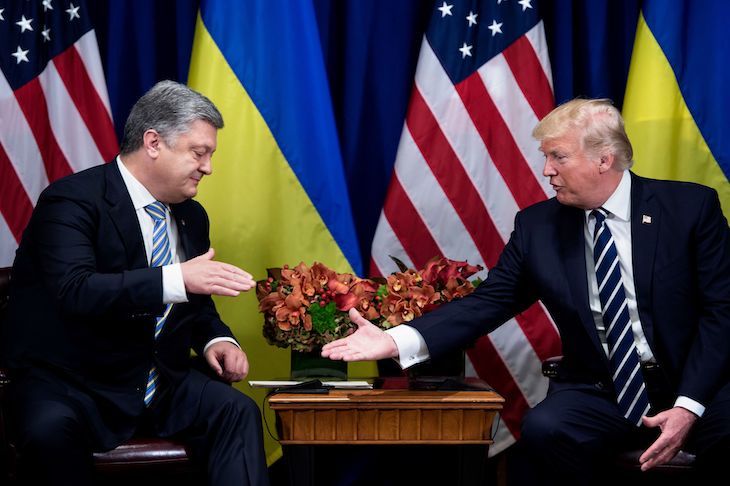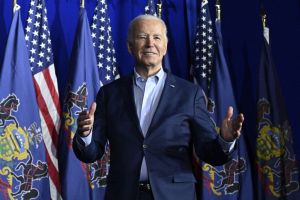The Trump campaign often appeared too chaotic to have been engaged in a treasonous conspiracy with the Kremlin. ‘We couldn’t coordinate with the Republican Party in Pennsylvania, let alone with Russian intelligence,’ a former senior aide to Trump said privately. If a conspiracy was in place, why were there such fumbling attempts by people in Trump’s orbit to make contact with various Russians and their allies? There was Donald junior meeting a Moscow lawyer linked to Russian intelligence, the introduction made by a British music promoter; or Trump’s friend, Roger Stone, clumsily using Twitter to message WikiLeaks, which had published the Hillary Clinton campaign emails, apparently hacked by Russia. An actual conspiracy, you might think, would make all that unnecessary. So is President Trump right that ‘Putingate’ is a hoax perpetrated by the ‘Deep State’?
Perhaps not. The case of Michael Cohen illuminates how Trumpworld works. He helps to understand how – if the president’s enemies are right – the Trump campaign might have interacted with the Kremlin. Cohen has been accused of trading off his status as Trump’s personal lawyer, offering access to the President, for a price. That price – it was reported earlier this month – was as much as $600,000 for the US phone company AT&T, $1.2m for the multinational pharmaceutical company, Novartis. The companies didn’t think they were getting their money’s worth and both stopped paying. In a withering statement, Novartis explained it had ‘determined that Michael Cohen would be unable to provide the services that Novartis had anticipated’.
This week the BBC ran a story saying that a foreign government, Ukraine, had also paid Cohen for access to Trump. Ukraine’s president, Petro Poroshenko, had already been offered – through official channels – a ‘drop-in’ to the Oval Office for a handshake and a photo op with Trump. This was felt by the Ukrainians to be a humiliation and they wanted something they could call ‘talks’. Cohen’s price for getting a few more minutes with Trump: $400,000 (allegedly). Unfortunately, here, too, it seemed Cohen could not deliver. Even as Poroshenko flew over from Kiev last June, he was unsure what would happen when he got to the White House. The Ukrainians thought they had been conned. ‘Poroshenko’s inner circle were shocked by how dirty this whole arrangement [with Cohen] was,’ said the BBC’s source.
In fact, said a former White House official, the last time Cohen was in the Oval Office talking to Trump was January 2017. He went then to bring a memo outlining a peace plan for Ukraine, which he placed on the President’s desk. ‘Can you imagine Trump actually reading pages and pages of a Ukrainian peace plan,’ the former official said. ‘He wouldn’t get past the second paragraph.’ Anyway, the president’s media aide, Hope Hicks, immediately came in to snatch up the envelope, which eventually made its way to the then National Security Advisor, Michael Flynn. Before Cohen left, Trump is supposed to have asked him: ‘How much money are you making from this thing?’
What light does all this shed on the Trump-Russia ‘scandal’ (or ‘matter’, if you prefer)? One member of the Western intelligence community described it this way… After Trump locked up the Republican nomination – in late spring 2016 – there was a scramble by people in Trumpworld to profit from their association with him. (Cohen tried a final push to get a Trump Tower built in Moscow.) On the Russian side, too, Vladimir Putin put up a pot of money for ‘US election operations’ and invited his subordinates to compete for it. One group of greedy and unscrupulous operators rushed headlong towards another… they collided in chaotic fashion. It didn’t really matter to either whether the other could actually do the thing they promised, as long as everyone made money.
If that picture is accurate it might explain leaks that suggest that the phone and other intercepts do not show an overarching conspiracy – no one conversation clearly pointing to treason – just a suspiciously high number of contacts between the Trump campaign and figures linked to Russian intelligence. Such contacts, if proved, might be enough to send some of Trump’s associates to jail – but would it be enough to impeach Trump? As ever, that depends on what Trump knew, and when he knew it.


















